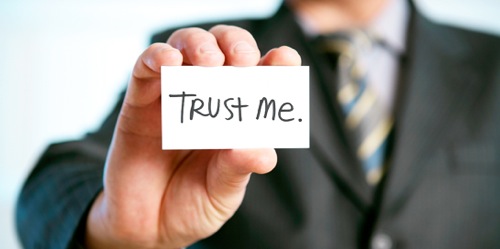
Given sufficient time, I think we can expect every community of any size to exhibit signs of some sort of hierarchy. Some gain reputation and status in the community, even if they are merely symbolic in nature. Leaders and followers emerge, with most of us falling leading some and following others. Few of us put much thought into this process as it happens, but that does not seem to stop it from happening.
The components of reputation and status vary from community-to-community. One's seniority might be highly advantageous in one community and perceived as a liability in another. In the atheist community, I think one important aspect of reputation and status might involve credibility. Whether you are thinking about a blogger, a speaker, or an activist, credibility is probably one of the attributes you value.
So how does one gain and maintain credibility in the atheist community? There are all sorts of ways, but I'd suggest that three things rise to the top:
- One has knowledge others lack.
- One typically provides something of value to others (i.e., one's work - whatever form it may take - is regarded as adding value by persons in the community); and
- One tends to conduct oneself in a reasonable manner the majority of the time.
In looking at #1, we see an association between one's knowledge and one's perceived credibility. If you blog about atheism but do not have at least a basic understanding of its meaning, it is unlikely that you will be viewed as being credible on the subject. All things being equal, the greater your knowledge of your subject matter, the more credible you will appear to be.
Regarding #2, the number of ways one can achieve this are almost limitless. One person might do it by creating unique artwork; another might do it by tireless political activism. One way of looking at this might simply be to ask whether one is any good at whatever it is that one does. There is no requirement that the value of one's work be universally recognized. It simply needs to be recognized by some, and credibility is enhanced. Thus, highly controversial figures may still gain credibility.
As difficult as #3 may be to define, it is nevertheless important. People are going to make mistakes, and perfection is not required for credibility. However, being perceived as more reasonable appears to be a valued aspect of credibility in the atheist community. It will be harder, though certainly not impossible, for the jackass to be perceived as being highly credible. In some ways, it is easier to identify the behaviors that would diminish one's credibility. These might include things like repeatedly being wrong and refusing to admit it, willful deceit, fighting the wrong battles, the exploitation of others, blatant hypocrisy, venturing too far outside one's areas of expertise, and so on.
Over time, one who is knowledgable, contributes something of value, and manages to behave in a generally appropriate manner earns credibility and tends to develop a decent reputation. One becomes known as informative, trustworthy, and the like. Mistakes will certainly be made along the way. It is how one deals with them that often seems to affect one's credibility.
For some additional thoughts on this subject, see Credibility and Popularity in the Atheist Community.